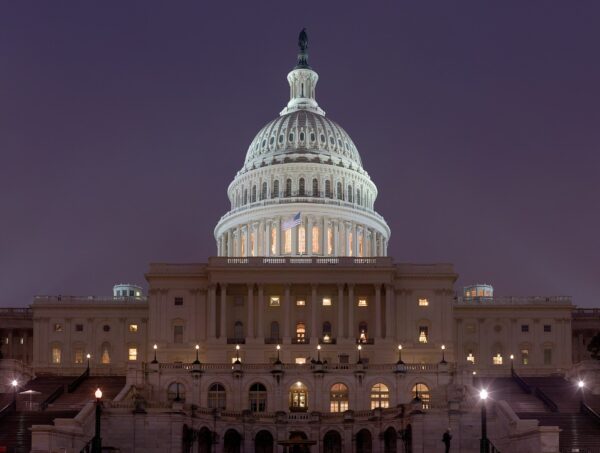Senate Republicans are now reportedly uniting behind a plan to confirm large numbers of President Trump’s nominees at once, seeking to overcome months of Democratic obstruction that has slowed even routine confirmations.
At a closed-door policy luncheon Wednesday, GOP lawmakers signaled they are prepared to invoke the so-called “nuclear option” — a rules change that would allow groups of 10 or more nominees with bipartisan committee support to be confirmed in a single vote.
Republicans described the change as a necessary response to Democrats’ unprecedented use of procedural tactics to stall the president’s appointments.
“I think everybody’s pretty united in moving forward, and actually moving forward pretty quickly,” said Senator Eric Schmitt, Republican of Missouri, who has been working on the plan. “‘En bloc’ is definitely top of the list.”
The proposal mirrors an idea first advanced by Senator Amy Klobuchar, Democrat of Minnesota, two years ago, though Republicans are considering broadening it to cover more nominees and larger batches.
Cabinet officials and judicial picks would not be eligible, but most ambassadors and sub-Cabinet positions — historically approved by voice vote — would be. “We’re not talking about judges,” Senator Mike Rounds, Republican of South Dakota, explained. “But we are talking about the vast majority of the ambassadors, the vast majority of the sub-level Cabinet [nominations] who normally receive very few ‘no’ votes.”
Senator John Barrasso of Wyoming, the Republican whip, said the move is critical to break the stalemate. “It still takes a while to get through the blockade. So it would be important … to be able to batch these, which is the standard of what we used to do in the past.”
He noted that of 135 civilian nominees confirmed so far, only one — Secretary of State Marco Rubio — advanced without a filibuster. Another 145 nominations are pending.
The frustration has been building for months. Republicans sought a deal in August with Senate Minority Leader Chuck Schumer of New York to advance nominees before the recess.
But talks collapsed, with Trump accusing Schumer of making unreasonable demands. Schumer countered that the president’s nominees require added scrutiny given his record in office.
GOP senators said the rule change could come within two weeks, before the current work period ends.
Senator Katie Britt of Alabama confirmed she has spoken with Democrats about the matter, but said most in the minority fear political consequences if they cooperate.
Republicans acknowledge the risks of changing the rules, since they could one day be in the minority. But many argue that Democrats’ current tactics leave them little choice. “We get that we’re going to be in the minority at some time, so we’re trying to come up with something that works whether you’re in the majority or the minority,” Senator John Hoeven of North Dakota said. “The worm always turns. We think it’s a fair change because when the shoe’s on the other foot and we’re in the minority, we’re going to have to live with it — and we’re fine with that.”
For now, Republicans appear determined to press ahead, insisting that routine government posts should not be held hostage to partisan gridlock.
[READ MORE: Trump Changes LinkedIn Photo, Causes Liberal Panic]








